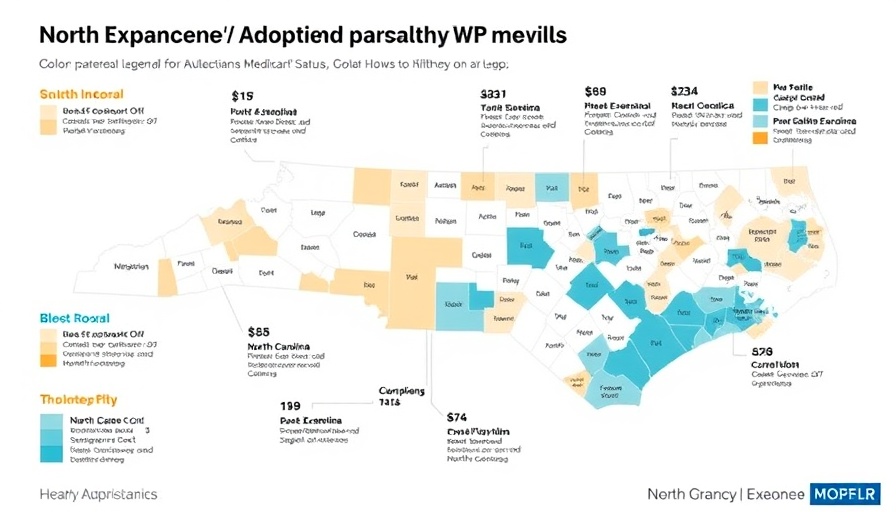
The Medicaid Expansion Landscape: What It Means for You
The Affordable Care Act (ACA) has been a game changer in extending healthcare access across the United States, specifically through Medicaid expansion. This initiative was devised to provide better healthcare access to adults with incomes up to 138% of the Federal Poverty Level. For 2025, this income threshold stands at approximately $21,597—an important figure for many individuals approaching retirement or currently navigating aging-related health issues.
Current Status of Medicaid Expansion Across States
As of now, 41 states, along with Washington D.C., have embraced the Medicaid expansion, while 10 states have opted out, creating a patchwork of coverage across the nation. For those living in states that have not adopted the expansion, the implications can be significant. In these areas, many low-income adults are left without health insurance options, forcing them to face medical costs without sufficient support. This raises crucial questions about equity in healthcare and the future of health policies in these regions.
Understanding the Impact on Older Adults
For elder adults, especially those nearing retirement, the decision of their home state to expand Medicaid can mean the difference between having necessary medical coverage or facing substantial out-of-pocket expenses. Medicaid expansion offers comprehensive services, including preventive care, which can help older adults manage chronic conditions effectively, all while improving their overall quality of life.
Social Connections: A Community Concern
The lack of Medicaid expansion in certain states highlights not just an individual issue but a broader community concern. Families worry about the implications of healthcare access, especially as they see their aging loved ones struggle with the burden of medical costs. With rising healthcare expenses, community solidarity becomes vital. Engaging in conversations regarding state policies can empower residents to advocate for changes that benefit their families and communities.
Future Outlook: Medicaid’s Role in Aging Populations
As we look to the future, several trends suggest that addressing Medicaid coverage for older adults will be more crucial than ever. With the aging population increasing daily, the demand for accessible healthcare services will surge. States that expand their Medicaid programs may find themselves better equipped to handle this growing need, thus improving not only individual health outcomes but also fortifying community health resources.
Conclusion: Why Understanding Medicaid Expansion Matters
Awareness of the status of Medicaid expansion decisions is not merely an academic exercise; it has real tangible implications for individuals, families, and communities, particularly among the elderly who may depend on these support systems as they transition into later stages of life. While the expansion stands as a critical aspect of the Affordable Care Act, localized decisions drastically affect who benefits from this essential healthcare safety net.
 Add Row
Add Row  Add
Add 




Write A Comment